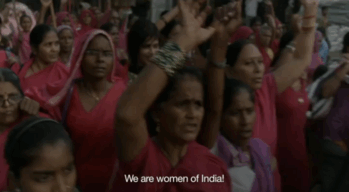Latest Posts by nisiablog - Page 4
Motorcycle scene- The Great Escape, 1963, Steve McQueen
https://twitter.com/AstroSamantha/status/554805032940765184?s=09
Check out @AstroSamantha's Tweet:



Three winters ago, the photographer Douglas Levere began making detailed portraits of one of western New York’s most ubiquitous subjects: snow.





(source)

How to change the world one shrug at a time.
This is, by far, the best response to inquiries about male cross-dressing that I have ever heard. If you don’t already love Eddie Izzard, you might now. His response in a nutshell? “I’m not wearing women’s dresses. I’m wearing my dresses. I bought them. They are mine and I’m a man. They are very clearly a man’s dresses.”
Johnny Depp does a similarly good job of refusing to take the bait in this clip from the Late Show with David Letterman. Letterman queries his rationale for wearing a women’s engagement ring. Depp just plays dumb and ultimately says that it didn’t fit his fiancée, but it did fit him. So… shrug.
The phenomenon of being questioned about one’s performance of gender is called “gender policing.” Generally there are three ways to respond to gender policing: (1) apologize and follow the gender rules, (2) make an excuse for why you’re breaking the rules (which allows you to break them, but still affirms the rules), or (3) do something that suggests that the rules are stupid or wrong. Only the last one is effective in changing or eradicating norms delimiting how men and women are expected to behave.
In these examples, both Izzard and Depp made the choice to disregard the rules, even when being policed. It seems like a simple thing, but it’s very significant. It’s the best strategy for getting rid of these rules altogether.
Thanks to Dmitriy T.C. for the links!
Lisa Wade is a professor of sociology at Occidental College. You can follow her on Twitter andFacebook.


GERRY VISCO: So, Eddie, you’re going to so many locations on your world tour.
EDDIE IZZARD: It’s about 32 cities in America, but I’m planning on going to all 50 states. This is the 24th country on the world tour.
VISCO: You like to do things in big way.
IZZARD: Well, yes. If you’re trying to get a bit of attention, you can smash up your hotel room or spend all your time going to openings or doing the gossip column thing. I just decided to do gigs in French, German, Spanish, and in America.
VISCO: Did you do the whole Berlin show in German?
IZZARD: Yes. Alles auf Deutsch. That’s what I was just learning.
VISCO: Is it true you’re dyslexic?
IZZARD: Yes.
VISCO: You seem like such a linguist.
IZZARD: Linguistics has nothing to do with reading.
[….]
IZZARD: My heels were high, but how high do they have to be? I wear whatever I want whenever I want. I don’t call it drag; I don’t even call it cross-dressing. It’s just wearing a dress.
VISCO: Do you call it transvestitism?
IZZARD: No, I just call it wearing makeup. No woman would say of another woman, “Oh, she’s wearing pants, what’s up with that?” Drag for me is costume, and what I’m trying to do is, sometimes I’ll go around and wear makeup in the streets, turn up to the gig, take the makeup off, do the show, and then put the makeup back on. It’s the inverse of drag. It’s not about artifice. It’s about me just expressing myself. So when I’m campaigning in London for politics, I campaign with makeup on and the nails. It’s just what I have on, like any woman.
[….]
IZZARD: I have a lot of boy stuff going on in me, and then I have the girly thing, so I’m trying to express that in the most honest way I can.
VISCO: Do you consider it a fetish, something sexual?
IZZARD: No, it’s a genetic gift that people have been given. Everyone gets cards at the beginning of life. I don’t believe in a god, so we just seem to get given these cards, and then some people will hide from them in the LGBT area. I am transgender, I decided to be honest and tell everyone about it, and that’s it.
VISCO: Did you get any feedback about it from the LGBT scene?
IZZARD: People I encounter have been very positive. You’re being yourself, standing your ground.
VISCO: Do you go to gay bars?
IZZARD: No, I just go to bars. I don’t seek out anything. I will just go places. I think when LGBT gets really boring then we’ve made it, because it shouldn’t be, “You’re gay? Oh my god! You’re transgender? Oh my god!” It should just be, “You’re LGBT? Fine. Are you any good at what you do—accounting, photography, playing the banjo? How are you at that?” Our sexuality should be a thing that’s there, but not the front signpost.
(source)
Star Trek Into Darkness Gag Reel
Leonard Nimoy - Zachary Quinto Lectures 2011 10 13




The Gulabi Gang, or Pink Gang, is an all-women vigilante group in India.
"Yes, we fight rapists with lathis [sticks]. If we find the culprit, we thrash him black and blue so he dare not attempt to do wrong to any girl or a woman again," boasts Sampat Devi Pal, the group’s founder and head.
Devi first discovered the power of the stick in the 1980s when she used it against a neighbour who abused his wife. Devi’s intervention had the desired result and the recalcitrant husband was forced to mend his ways. More importantly, Devi’s model of delivering alternative justice inspired a movement that now boasts of a network of 400,000 women - dressed in pink sarees and all wielding a stick - across 11 districts of India’s largest province of Uttar Pradesh.
From fighting violence against women, preventing child marriages, arranging weddings of couple in love despite local resistance, to ensuring delivery of basic rights for the poorest of poor, the Gulabi Gang’s vision is to ‘protect the powerless from abuse and fight corruption’ has found easy resonance across much of India’s hinterland, blighted by unending reports of sex crimes and gang rapes.
"When a woman seeks the membership of Gulabi Gang, it is because she has suffered injustice, has been oppressed and does not see any other recourse," says Suman Singh, the group’s deputy commander, from Mahoba district. "All our women can stand up to the men and if need be seek retribution through lathis," she adds.
"The Gulabi Gang has stepped into the vacuum left by the state and offers an alternative means of attaining justice."
[article]/[video]
The Berlin Celebration Concert - Beethoven, Symphony No 9 Bernstein 1989


The triskellion is my favorite symbol. I doodle them everywhere.
Star Wars IV: A new hope - Binary Sunset (Force Theme)


"There’s nothing holy anymore, nothing sane nor sensible. The world’s turned bad, and so have I." (Electra)
“I ask you again / You who watch / How can there ever be any ending but this? First silence / Then darkness.” (Medea)
Electra with Kristin Scott Thomas and Medea with Helen McCrory are the best stage productions I’ve ever seen. So powerful, moving and heartbreaking. I adore British actresses.
With unfailing kindness, your life always presents what you need to learn. Whether you stay home or work in an office or whatever, the next teacher is going to pop right up.
Charlotte Joko Beck (via meditationsinwonderland)
Life always give us exactly the teacher we need at every moment. This includes every mosquito, every misfortune, every red light, every traffic jam, every obnoxious supervisor, every illness, every loss, every moment of joy or depression, every addiction, every breath. Every moment is the guru.
Charlotte Joko Beck (via emotional-algebra)
By David Mermelstein, Published: June 1 Washington Post | BEVERLY HILLS, Calif.
When Joel Kinnaman enters a room, you half expect him to be wearing a hoodie, so closely is that garment associated with Detective Stephen Holder, the scruffy, gruff-talking cop he portrays so memorably on the...
Holderisms [Part 5]











#thekilling #holder #joelkinnaman #holderisms @TheKillingonAMC


I thought I lost you there for a second, just when I was getting used to you. That was scary, huh?




Now THIS is a bold lingerie ad.
When the star model for Forever Yours Lingerie was diagnosed with cancer, the brand decided to stick with her. Tom Megginson approves:
"So, while American Eagle is getting virtual hugs and high fives for its commitment to not photoshopping its typical-looking models, elsewhere there are brands and models who are willing to show us what it really takes to do something about the fashion industry’s body image problem.”
Read more at The Ethical Adman.
https://twitter.com/CNET/status/502407601788039168
Check out @CNET's Tweet:
Suicide, a Crime of Loneliness

Andrew Solomon on Robin Williams:
“He played an alien so well because he was an alien in his own mind, permanently auditioning to be one of us. Suicide is a crime of loneliness, and adulated people can be frighteningly alone. Intelligence does not help in these circumstances; brilliance is almost always profoundly isolating.”
Above: Robin Williams, September 14, 1978. Photograph by Jim Britt/Getty

Nisia at age 11

